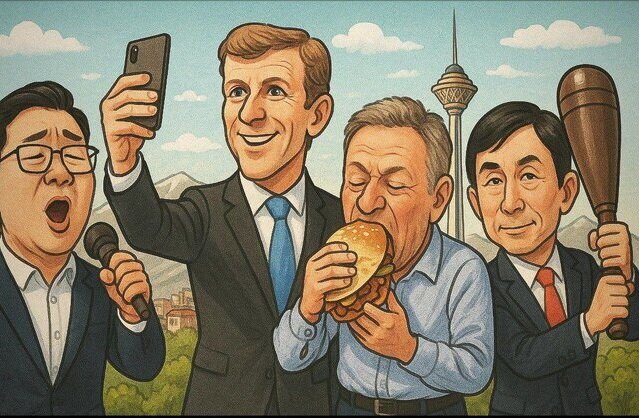Digital diplomacy, a new approach to be embraced by diplomats and ambassadors

TEHRAN - Mohsen Sohani, a tourism researcher, in a recent note, has put the spotlight on “soft power” as a robust tool to attract or persuade potential travelers to visit a host country.
In an interview with ISNA, he said that practicing public diplomacy via popular digital platforms is one of the manifestations of the realization of this goal.
For instance, he said, the ambassadors of foreign countries in Iran can create a cultural bridge between the nations through eating a traditional Persian dish like Abgoosht or Kebab. “South Korea's Ambassador to Tehran Kim Jun-pyo sang an old Iranian song with his sweet accent.”
Once upon a time, an ambassador was only an official representative and political diplomat of a country. “Usually, they used to be just serious diplomats in elegant suits who attended official sessions and made official statements.”
But nowadays, just take a look at virtual media and social networks, watch one of short and funny videos uploaded by foreign diplomats who reside in Iran and understand that the game has changed!
You see that the UK ambassador talks about Iranian tea and his memories in the old embassy building in a friendly tone. Or German ambassador eats donner kebab in Ferdowsi square and talks about his daily life in Tehran.
Japanese ambassador practices in Zoorkhane, a revered dome-shaped building with seats for spectators and an octagonal, submerged arena.
These sweet events are part of calculated strategies based on digital diplomacy.
Being active in social media
Based on a report released by Brookings Institution, over 85 percent of countries asked their ambassadors to be active in social media in 2023. The reason is clear: “Sometimes, an Instagram post has influence of over hundreds of times of official negotiations.”
According to Joseph Nye’s definition, "soft power" is ability to attract and convince without resorting to force or money. It is a tool that is implemented through culture, values, and legitimizing policies.
Public diplomacy, as a subset and the most important foundation of soft power, focuses on direct interaction with people of other countries.
In the present era, these concepts have been linked to the emergence of social media and the phenomenon of soft war.
A war that is waged not with weapons, but with narrative creation, national branding, and manipulation of public opinion, and can be interpreted as a “global war of identity” as the most important piece in today's hybrid wars.
Ambassador-influencers
Any country which creates the most engaging and humane narrative wins the field of influence. This is where the role of “ambassador-influencers” comes into play. By personalizing diplomacy, they break down rigid state boundaries and change mindsets by building trust and empathy.
But in the meantime, there is room for a big question: So, what about us?! Why doesn't any Iranian ambassador or even cultural counselor abroad create such narratives?! Why doesn't any Iranian diplomat in London, Paris, or Seoul show a vivid, humane, and intimate picture of Iran today? Why is our narrative still either official, censored, or delayed?
Power of communication sciences
The answer must be sought in a combination of fear, distrust, lack of specialized knowledge and skills, and structural weakness. The mechanism of our cultural diplomacy has not believed in the power of “communication sciences”. We are still captive to traditional thinking.
We think our representative should confine himself/herself to rigid frameworks. We are still afraid of the presence of a diplomat in cyberspace. We distrust the power of imagery, humor, nostalgia, and direct communication with public opinion.
This is while Iran, as an ancient nation and civilization, has attractive stories to tell and has upper hand to conquer the minds and hearts of people around the world.
In a world where even a foundation of hard-fought wars is shaped by the media narrative, inaction in such fateful arenas is tantamount to being removed from the map of geoculture.
Iran needs a fundamental transformation in its diplomatic apparatus and redefinition of the concept of public diplomacy, particularly in the Ministry of Foreign Affairs and the Islamic Culture and Communication Organization. A transformation in which every ambassador or advisor is a media activist and every action, especially in cyberspace, is a cultural bridge and a tool for acquiring soft power.
KD
Leave a Comment